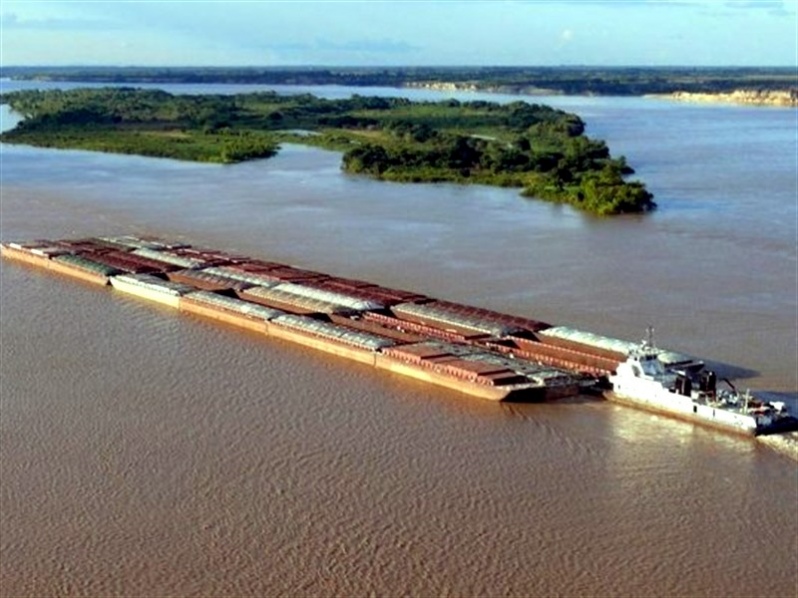RIO DE JANEIRO, BRAZIL – Paraguay’s river traffic has grown from 700,000 tons in the late 1980s to 23 million tons today, with 343 tugboats and 100 container ships. This has made the country the largest river fleet in South America and the third-largest globally, but the state lacks an institutional framework for multimodal transport.
Despite the steady growth of river and land transport since the democratic era, the Paraguayan state has not adapted to global developments.
Read also: check out our coverage on Paraguay
Today’s Paraguay lacks an institutional framework for multimodal transport and a comprehensive vision, causing delays in the entry and exit of trucks at the border and dredging works in the waterway that would allow river navigation at any time. In addition, rail should be included as an intermediate mode of transportation between land and river traffic.

Juan Carlos Muñoz, an international consultant on international trade logistics and international physical distribution, pointed out that the country has consolidated the provision of river navigation services with high technology and trained human resources according to the requirements, but lacks a Ministry of Transport that comprehensively addresses the problems in both national and regional logistics.
He added that this does not lead to more bureaucracy, but on the contrary, allows the private sector to increase its investments to improve navigability and land transport. “Paraguay is the only country in South America that does not have a Ministry of Transport (…) So we will definitely either go down that path or continue with patchwork,” he said.
BUREAUCRACY AND INFORMALITY
For his part, Ricardo Svec regretted the loss of time in the facilities of the National Administration of Navigation and Ports (ANNP) and the National Customs Directorate, which could be solved by using the infrastructure of private ports.
He also pointed out that tax legalization of truck drivers and owners of trucks should be sought, which would avoid the use of intermediaries and thus reduce costs.
He also pointed out that Paraguay needs to introduce dual-track trucks, as used in Brazil and Argentina, which will improve freight transport.
To this end, he said that an implementation framework for investment in infrastructure is needed and social support with alternatives so that the 40,000 truck drivers can adapt, retool their vehicles, and access credit with appropriate conditions.
In addition, investments should be made in industrial development poles in different cities with better transport connections.

